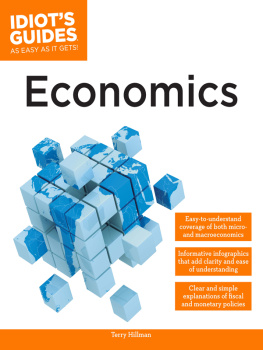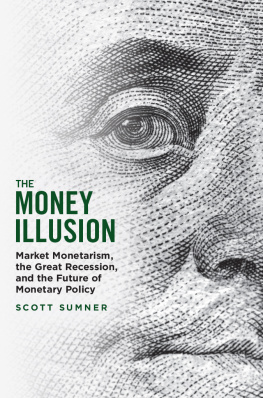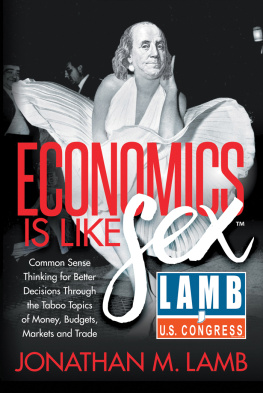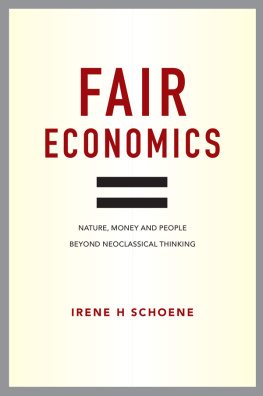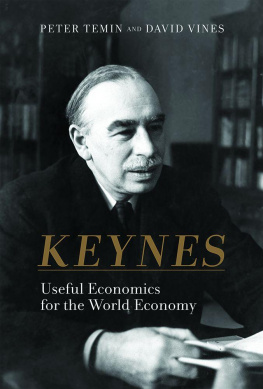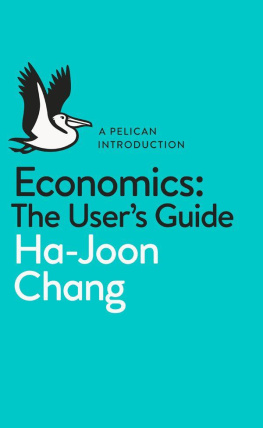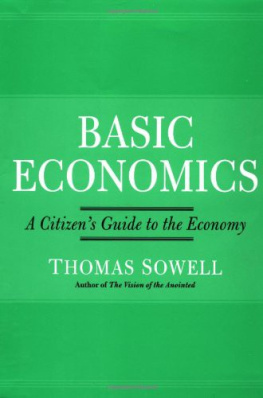Money and Government
ROBERT SKIDELSKY
Money and Government
The Past and Future of Economics

First published in the United States in 2018 by Yale University Press.
First published in the United Kingdom in 2018 by Penguin Books Ltd., London,
as Money and Government: A Challenge to Mainstream Economics.
Copyright 2018 by Robert Skidelsky. The moral right of the author has been asserted. All rights reserved.
This book may not be reproduced, in whole or in part, including illustrations, in any form (beyond that copying permitted by Sections 107 and 108 of the U.S. Copyright Law and except by reviewers for the public press), without written permission from the publishers.
Yale University Press books may be purchased in quantity for educational, business, or promotional use. For information, please e-mail (U.K. office).
Typeset in 10.5/14 pt Sabon LT Std by Jouve (U.K.), Milton Keynes.
Printed in the United States of America.
Library of Congress Control Number: 2018954397
ISBN 978-0-300-24032-0 (hardcover : alk. paper)
This paper meets the requirements of ANSI/NISO Z39.48-1992
(Permanence of Paper).
10 9 8 7 6 5 4 3 2 1
To students of political economy, young and old
Contents
Figures
Preface
We are at a junction where the whole of macroeconomic policy is up for grabs. Everything we thought settled by the Great Moderation of the fifteen pre-recession years, a period of exceptional stability in Western economies, has been thrown into turmoil by the scale of the collapse of 20089 and the feebleness of the recovery from it. That poses a mighty challenge for the ruling economic doctrines. Policy will shift, is already changing; textbooks will have to be revised. Economics in the future will need to reflect much more on where it has come from and what it needs to do.
This book aims to build a new audience for economics while, at the same time, being of interest to the professional economist. It attempts to bridge the gap between popular books inspired by the crisis, which economists dont read, and economists analyses of the crisis, which non-economists cannot understand.
It started off as a series of lectures to third-year economics students at the University of Warwick, and I am grateful to the Department of Economics for allowing me to put into practice my ideas of how economics should be taught. The book seeks to enfold technical issues in what, for want of a better term, may be called political economy. I am interested in the interplay between economic ideas and the circumstances in which they rise, flourish and decay. My account of what went wrong in 20089 is grounded in the historical debates on economic policy. The proposals in the last chapter for a new framework for economic policy are derived from the lessons I draw from both this history and the Great Recession itself.
Britain has been my chief witness for the defence and prosecution. This reflects the limitations of my own knowledge, but it is not the entire reason for my focus. For much of the period, and for many of the events covered by this book, Britain was the pacemaker and rule-setter for the global economy, an amazing achievement for a country with just 1 per cent of the worlds population (it went briefly up to 2 per cent in the 1850s). David Hume, Adam Smith, David Ricardo, John Stuart Mill, Alfred Marshall and John Maynard Keynes towered over the economics of their day; Britain was the first modern gold-standard nation, the first commercial society, and the first industrial nation. The City of London bestrode the world of international finance; the Victorian fiscal constitution provided a universal model of good government; and Britain possessed adequate hard power to enforce the rules of a liberal international trading order. It was from the Manchester system that Karl Marx and Friedrich List, the great nineteenth-century continental dissidents, tried to distil their lessons; and, much later, Karl Polanyi took Britain as his case study of the wrenching effects of the market economy.
I am talking here about the mainstream classical and neo-classical economics tradition. Nineteenth-century economic practice was always much more pluralist than mainstream doctrine. But though there were many dissenters from the SmithRicardo school, there were no serious analytical challengers that is, until Keynes in the twentieth century.
In the first half of the twentieth century, economics became much more pluralist in parallel with the convulsions of the world wars, the Great Depression, and the decay of British power. Keynes was the last economics leader from Britain. After the Second World War, the centre of gravity in Western economics shifted decisively to the United States, the new political hegemon, while the dissenting voices of Marxism and Protectionism continued to hold sway in developing countries, and the communist world built a Pharaonic system that dispensed with Western economics altogether. By the 1990s, with the fall of communism, economics had become an almost wholly American-owned subsidiary, the charter of globalization. Today, with the decay of American power and following the Great Recession of 20089, another geopolitical and intellectual shift is taking place.
I have not attempted a general history of economics, which would certainly include many great thinkers and important schools not mentioned here, but only that part of it which seemed most important for understanding the economic collapse of 20089; hence my focus on the unsettled issues of money and government. In my approach, I have been chiefly influenced by Keynes, whose biography I have written. However, as the book progressed I became increasingly drawn to the insights of Karl Polanyi, with his insistence that, to be viable, a market order has to be embedded in a framework of rules, policies and institutions. This insight has been somewhat neglected by the dominant school of Anglo-American economics.
My debts have accumulated. I would in particular like to thank Spencer Boxer, Gordon Brown, Oliver Bush, Andrea Califano, Tim Congdon, Paul Davidson, Michael Davies, Meghnad Desai, Tommaso Gabellini, Jamie Galbraith, Simone Gasperin, Andy Haldane, Geoffrey Harcourt, Michael Kennedy, David Laidler, Laurie Laybourn Langton, Toby Lewis, Felix Martin, Vladimir Masch, Marcus Miller, George Peden, Atanos Pekanov, Philip Pilkington, Edward Skidelsky, Leanne Stickland, David Sturrock, Thomas Tozer, Christopher Tugendhat, Paul Westbrook and Christian Westerlind Wigstrom. Their help has been invaluable; the approach is my own.
Introduction
I. UNSETTLED ISSUES
Macroeconomics is about money and government, and their relationship. The unsettled questions in macroeconomic policy stem from disputes about the part money plays in economic life, and the part government should play. For 250 years, the dominant view of the economic profession has been that money is of no importance except when it gets out of order, and that government interference with the market usually makes things worse. You cant buck the market, Mrs Thatcher famously declared. A competitive market economy, it was claimed, has an automatic tendency to full employment. Disturbances to employment are the result of interference, usually by or at the behest of governments, creating or promoting monopolies, impeding price adjustments or, crucially, by monkeying around with the money supply, thus inducing people to trade at the wrong prices. At first it was believed that control of money should be entrusted to the gold standard; when the gold standard broke down, to independent central banks. Government should be limited to ensuring the conditions required for efficient market exchange. The only task of macro policy was to control the money supply.
Next page



